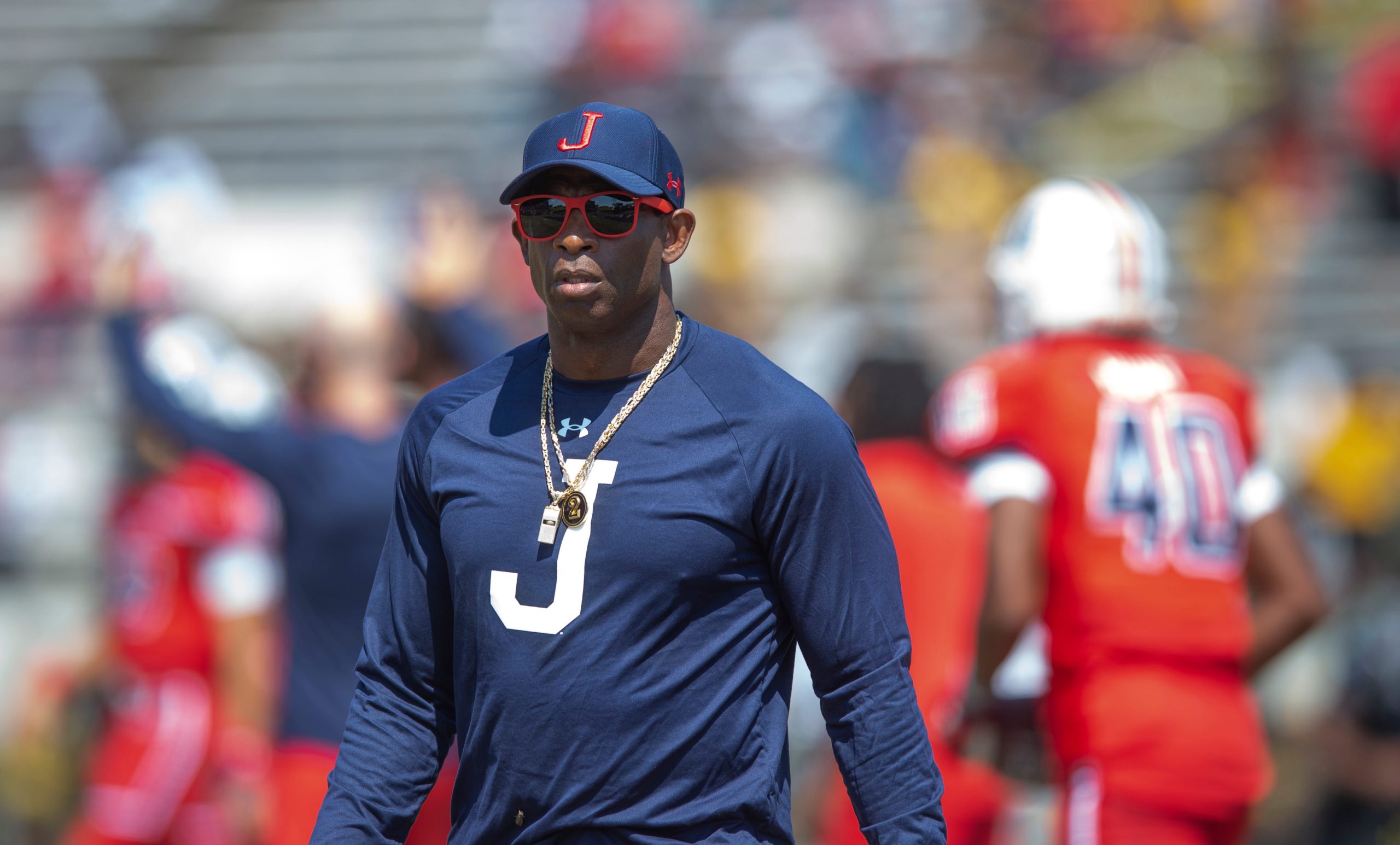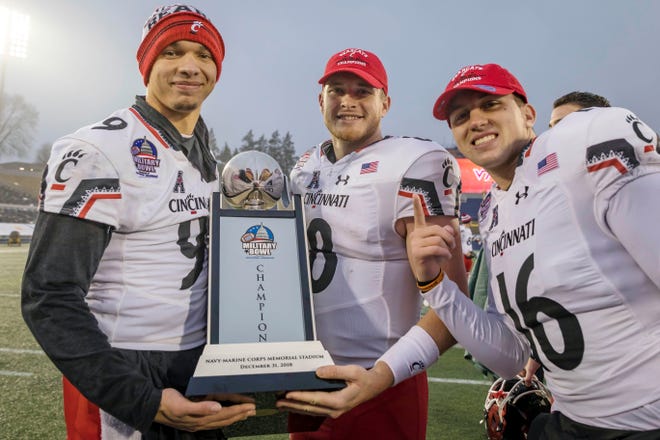

The University of Colorado Board of Regents on Thursday overwhelmingly voted to approve the employment contract of celebrated new head football coach Deion Sanders.
But it wasn’t unanimous.
The vote was 8-1.
Which means somebody had a reason to fly in the face of public pressure and vote against Sanders, whose hiring this month might have been the most exciting event to happen to the Buffaloes in more than 20 years.
So who is this dissident? And why did he do that?
Follow every game: Latest NCAA College Football Scores and Schedules
His name is Jack Kroll, and USA TODAY Sports contacted him Thursday after the vote. This is the same Jack Kroll who was photographed with Sanders and other Colorado officials at Sanders’ introductory press conference in Boulder Dec. 4.
Kroll is smiling in the photo.
His vote tells another story.
“I had gone to the press conference to hear what Deion had to say,” Kroll told USA TODAY Sports. “There is no doubt he is a really charismatic guy, and I had gone with the intent to hear him and see if I could get behind him and support him. I wanted to go shake his hand, and so I shook his hand and wished him luck because I figured whether I vote yes or no on this, he’s still going to be the football coach. I shook his hand, and there was a photo. I wished him luck.”
Usually, at other major universities, football coaches’ contracts are rubber-stamped by university governing boards with no dissent.
COACHES COMPENSATION:Meet college football's $1M strength coach
DATABASE: College football assistant coach salaries
RECRUITING: Sanders makes big splash at Colorado with early signing period
Just not here and not with Kroll, who made similar dissenting votes with the previous two coaches at Colorado – and for similar reasons.
So his vote is not about Sanders specifically. He said it’s instead about his fiduciary responsibility as an elected regent looking out for the long-term interests of the university and its students.
Depending on the viewpoint, Kroll could be considered contrarian and courageous or just plain wrong amid a transformative time in college football. Either way, his is the rare voice of a university governing board member who is standing up against the university’s beloved football program.
He gave three general reasons for his vote, and the university has a general response to each:
►1. The business model is not sustainable, he says. Coaches are making more money than ever. In Boulder, Sanders will start his five-year deal at $5.5 million annually, more than CU has ever paid a coach, but still far less than what other coaches make in the Big Ten and Southeastern Conferences. Kroll said the university helps “subsidize” athletics with millions of dollars in funding, including a mandatory athletic fee of $28.50 per semester for undergraduate students. In 2019-20, CU reported $11.2 million in allocated revenues, which is defined as the sum of student fees, direct and indirect institutional support and other funds allocated to the athletic department. This ranked fifth among public schools in the Pac-12 Conference, according to USA TODAY Sports data.
The university noted that coaches’ contracts are not paid “through tuition money, taxpayer dollars or the campus general fund” and instead are paid through athletic department revenues, such as ticket sales, donations and media rights.
►2. Kroll noted that players soon might be classified as employees under the law. Kroll is not against such a classification but doesn’t see how Colorado can afford to add this huge new labor expense.
The university said it couldn’t speculate on what might happen in this regard. It has noted a huge surge in sales and positive publicity for the university since Sanders’ hiring, which already is enough to justify it in the eyes of many CU alumni and fans. Like other schools, CU’s football program drives most of the revenue in athletics and helps pay for other sports.
►3. Kroll said he is concerned about head injuries from football and their long-term effect on players. CU in particular has had a number of former players who have died or suffered other health problems associated with head injuries.
The university noted it has “been a leader in research into the prevention, diagnosis, and treatment of traumatic head injuries in collaboration with the NCAA.”
In short, Kroll says the university and its constituents would be better off using its resources on other healthier and more sustainable pursuits, such as research labs or residence halls.
“If I were able to just wear my fan hat here, it’s exciting,” said Kroll, whose six-year term ends soon after he decided not to seek reelection. “But I think as a fiduciary for the university I’ve got to see a bigger picture, and yeah, I get blowback and angry voicemails. I don’t check Twitter. It’s OK. They’re entitled to their thoughts and passions on these things. In the short run, it’s a really exciting time for the university to bring in a guy like Deion Sanders, and people are pumped up about it. Anyone who stands in that way is going to hear about it.”
Kroll said his vote also was influenced by personal regret. Back in 2017, he voted in favor of a three-year contract extension for then-head coach Mike MacIntyre, who had just led the Buffaloes to a 10-4 season in 2016, one of only two winning seasons for Colorado in the past 17 years.
Then just a year and a half later, CU fired MacIntyre in November 2018 after his team’s on-field performance collapsed with six straight losses. CU ended up paying $7.2 million to buy out his contract.
“There was a lot of pressure to approve that contract,” said Kroll, a CU Denver graduate who works at a nonprofit in the education sector. “I ended up voting for it, and he was gone in a year and half. I sort of felt like I compromised my beliefs on the subject and sort of vowed to not do it again.”
The regents’ vote on that contract extension was unanimous, with one regent, Linda Shoemaker, not participating. She later dissented on football coaches’ contracts, too, but is no longer on the board after deciding to not seek reelection.
“I don’t think there’s anyone of this current board who is going to be a dissenting voice going forward,” Kroll said.
His term ends in January.
Follow reporter Brent Schrotenboer @Schrotenboer. E-mail: [email protected]








